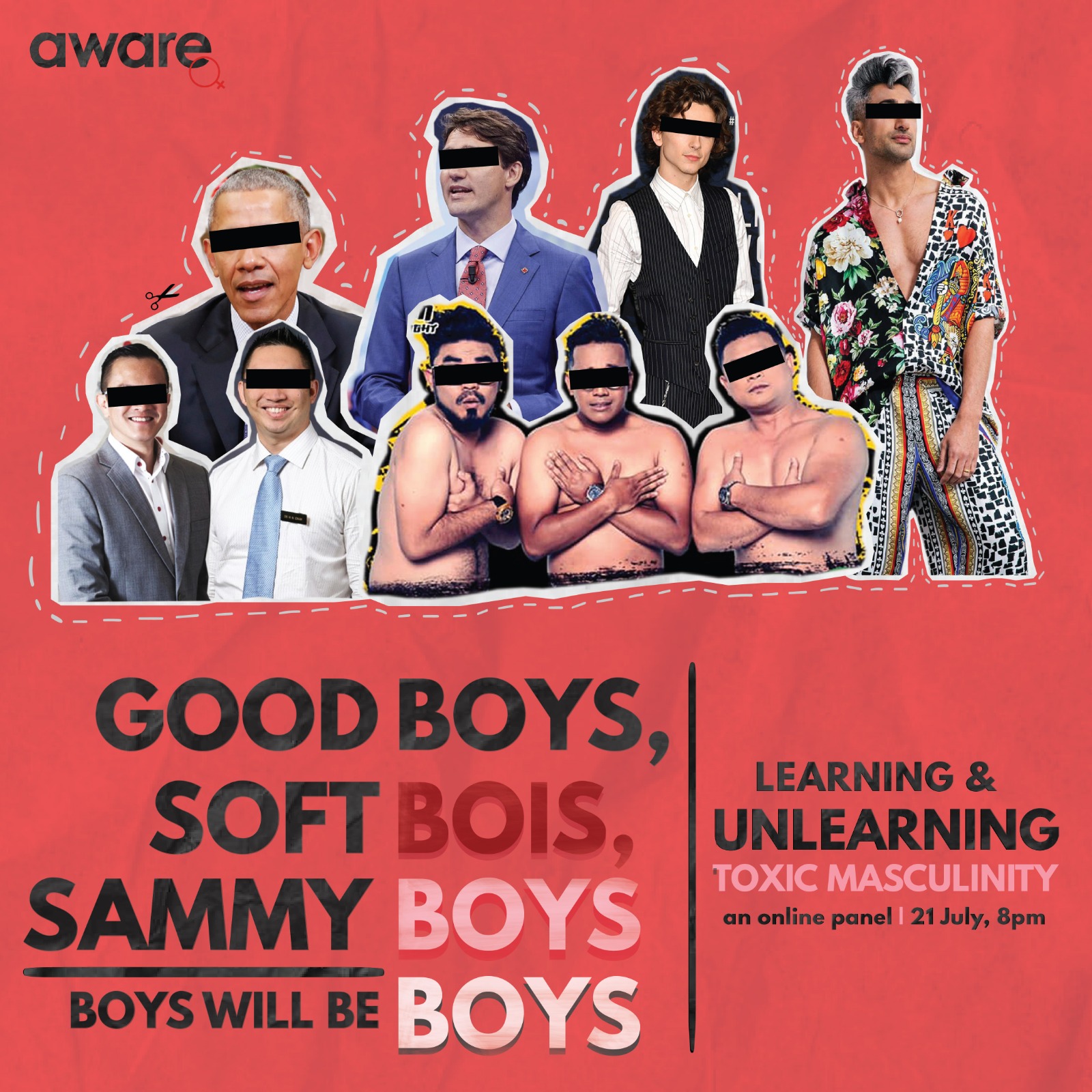-
Advocacy Theme
-
Tags
- Abortion
- Adoption
- Caregiving
- CEDAW
- Disability
- Domestic Violence
- Domestic Workers
- Harassment
- Healthcare
- Housing
- International/Regional Work
- Maintenance
- Media
- Migrant Spouses
- Migrant Workers
- Muslim Law
- National budget
- Parental Leave
- Parenthood
- Polygamy
- Population
- Race and religion
- Sexual Violence
- Sexuality Education
- Single Parents
- Social Support
- Sterilisation
- Women's Charter
21 July 2020: Good boys, softbois, sammyboys, boys will be boys – learning and unlearning toxic masculinity
July 13th, 2020 | Events, Gender-based Violence, LGBTQ, News
Misogyny running rampant on popular podcasts. Doctors undermining their oath to do no harm. Underwear thieves and sexual voyeurs lurking in toilets and MRT stations. Looking at the news today, you’d be forgiven for asking: Do we need to urgently detoxify masculinity in Singapore?
We are socialised into gender roles at a very young age. Unfortunately, the idea of masculinity has come to be inextricable from violence, sexual conquest, status and aggression. Culture tells us time and again that being a man is to be strong and dominant above all else; on the other hand, traits like emotional vulnerability are “feminine” and signs of weakness. These rigid ideas punish everyone across the gender spectrum.
So: What should it mean to be a man today?
A more equal world is only possible if men critically reflect on imbalances of power and gender inequitable norms. We need men to engage with other men: to challenge harmful norms and sexist beliefs, to become allies within their families, workplaces and communities. The fight for gender equality has to be shouldered by men as well – after all, they have much to gain from it.
Undoing a lifetime’s worth of lessons about how to “be a man” is not an easy task, but it can start with open discussion. Join us for a panel with and about male feminist allies, moderated by AWARE’s Head of Research and Advocacy, Shailey Hingorani. We’ll listen to their experiences dismantling traditional gender roles and behaviors, unlearning harmful stereotypes, and examining conscious and unconscious behaviours that perpetuate misogyny.
Suggested donation of $5.







